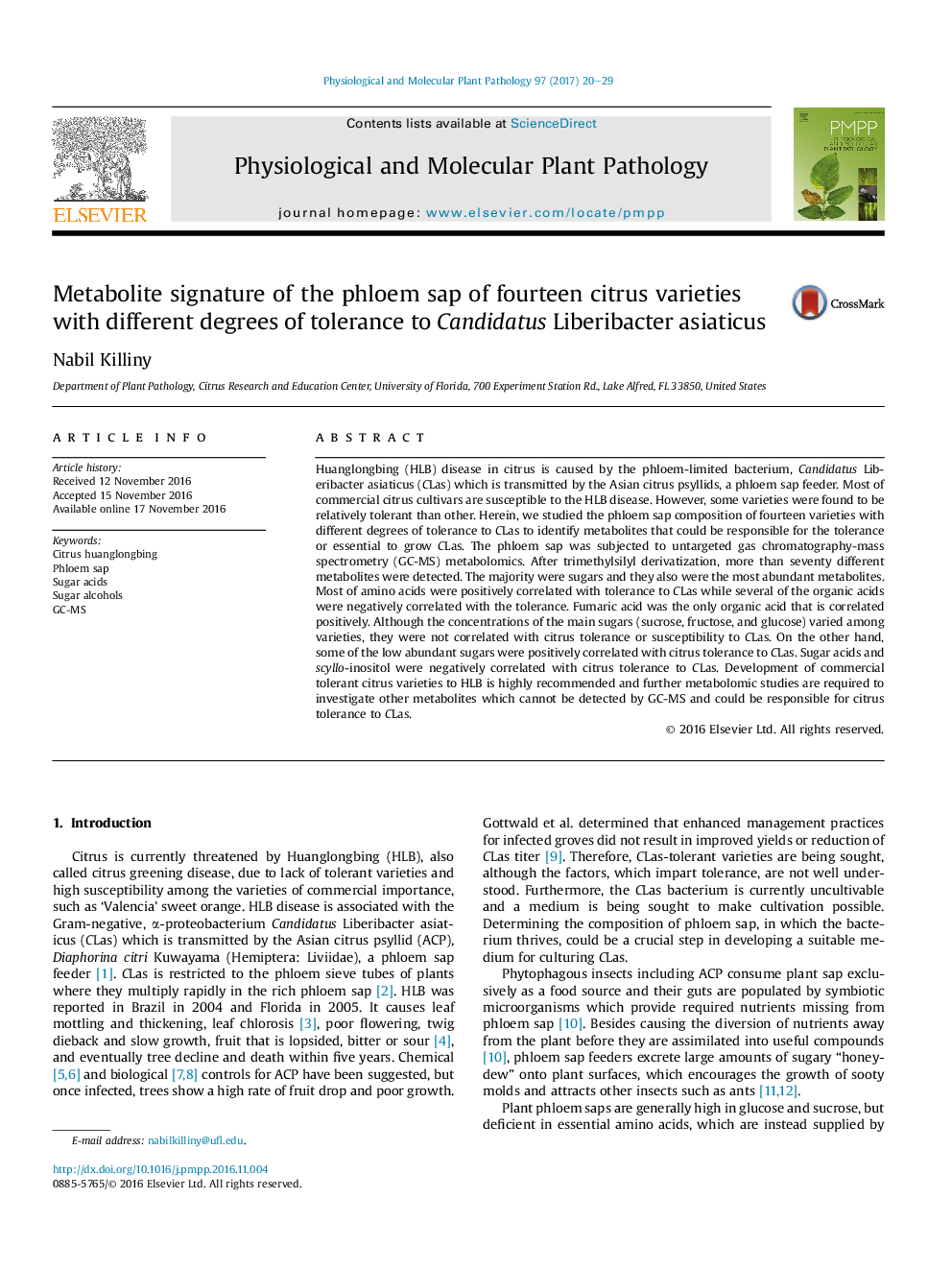| کد مقاله | کد نشریه | سال انتشار | مقاله انگلیسی | نسخه تمام متن |
|---|---|---|---|---|
| 5592620 | 1570842 | 2017 | 10 صفحه PDF | دانلود رایگان |
عنوان انگلیسی مقاله ISI
Metabolite signature of the phloem sap of fourteen citrus varieties with different degrees of tolerance to Candidatus Liberibacter asiaticus
دانلود مقاله + سفارش ترجمه
دانلود مقاله ISI انگلیسی
رایگان برای ایرانیان
کلمات کلیدی
موضوعات مرتبط
علوم زیستی و بیوفناوری
علوم کشاورزی و بیولوژیک
دانش گیاه شناسی
پیش نمایش صفحه اول مقاله

چکیده انگلیسی
Huanglongbing (HLB) disease in citrus is caused by the phloem-limited bacterium, Candidatus Liberibacter asiaticus (CLas) which is transmitted by the Asian citrus psyllids, a phloem sap feeder. Most of commercial citrus cultivars are susceptible to the HLB disease. However, some varieties were found to be relatively tolerant than other. Herein, we studied the phloem sap composition of fourteen varieties with different degrees of tolerance to CLas to identify metabolites that could be responsible for the tolerance or essential to grow CLas. The phloem sap was subjected to untargeted gas chromatography-mass spectrometry (GC-MS) metabolomics. After trimethylsilyl derivatization, more than seventy different metabolites were detected. The majority were sugars and they also were the most abundant metabolites. Most of amino acids were positively correlated with tolerance to CLas while several of the organic acids were negatively correlated with the tolerance. Fumaric acid was the only organic acid that is correlated positively. Although the concentrations of the main sugars (sucrose, fructose, and glucose) varied among varieties, they were not correlated with citrus tolerance or susceptibility to CLas. On the other hand, some of the low abundant sugars were positively correlated with citrus tolerance to CLas. Sugar acids and scyllo-inositol were negatively correlated with citrus tolerance to CLas. Development of commercial tolerant citrus varieties to HLB is highly recommended and further metabolomic studies are required to investigate other metabolites which cannot be detected by GC-MS and could be responsible for citrus tolerance to CLas.
ناشر
Database: Elsevier - ScienceDirect (ساینس دایرکت)
Journal: Physiological and Molecular Plant Pathology - Volume 97, January 2017, Pages 20-29
Journal: Physiological and Molecular Plant Pathology - Volume 97, January 2017, Pages 20-29
نویسندگان
Nabil Killiny,